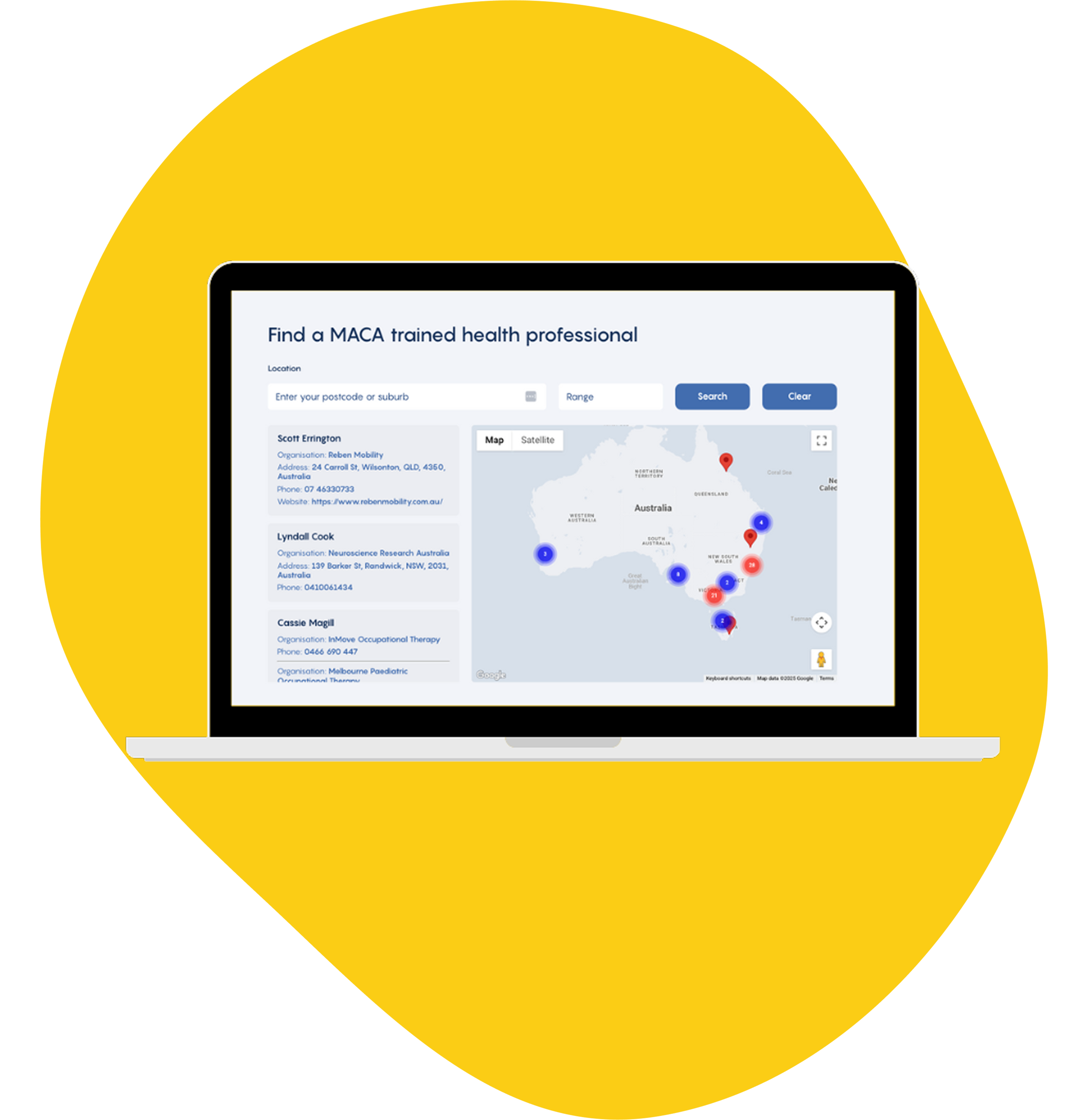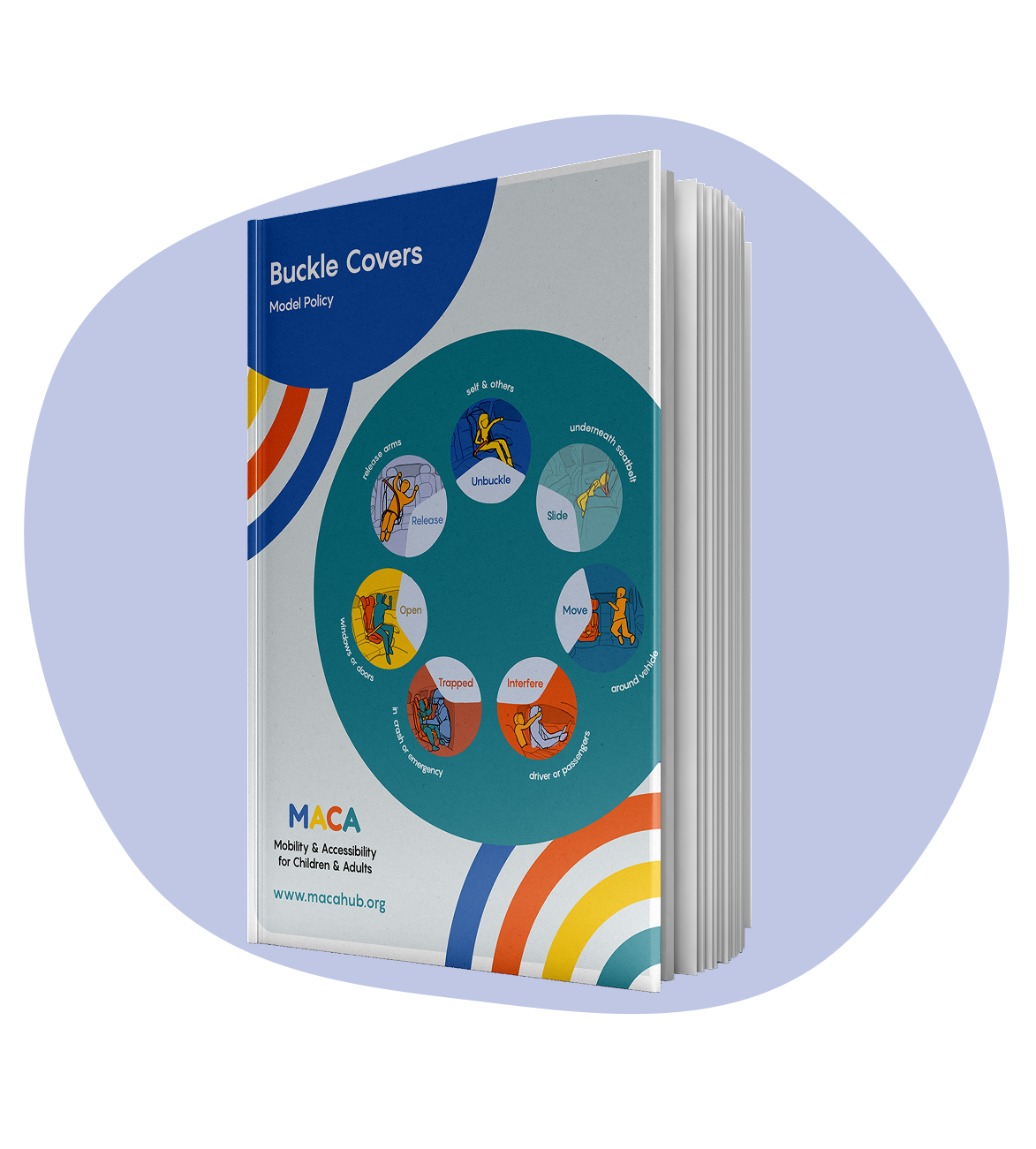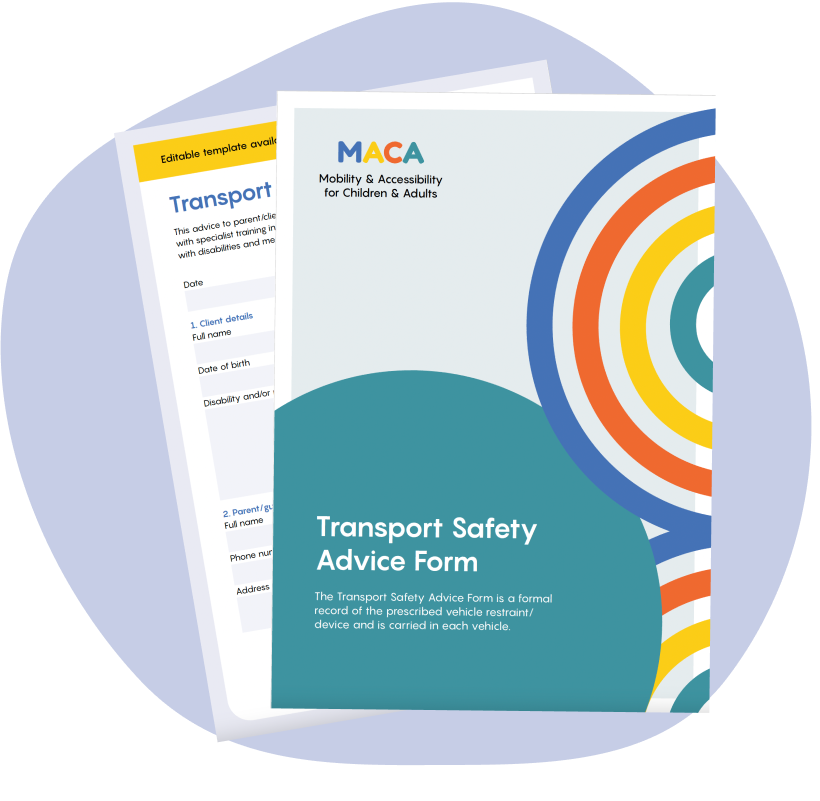Tasmania
Understanding road laws

Introduction
This page explains the main road rules in Tasmania for travelling in cars. These rules include exemptions where a person with a disability or medical condition needs an alternative restraint or method of travel.
But research shows these exemptions don’t always keep people safe. To support safer outcomes, we recommend seeking an assessment from a MACA trained allied health professional.
To improve protection for children with disabilities and medical conditions under the road rules, we successfully advocated for the current review of the Australian Child Restraint Road Rules to be inclusive of children with disabilities and medical conditions.
The National Transport Commission is now leading an inclusive review, and we are participating in the review’s Expert Advisory Group.

Tasmanian road rules
The Tasmanian Road Rules provide requirements for how people must be restrained when travelling in a motor vehicle, in the following age groups:
• Under 6 months
• 6 months to under 4 years
• 4 years to under 7 years
• 7 years to under 16 years
• 16 years and over
The rules define approved vehicle restraints, which are generally Australian standard car seats and seatbelts that comply with the Australian Design Rules. The type of vehicle restraint required will depend on the person's age and size.
Where a person with a disability or medical condition is unable to travel in an approved vehicle restraint, there are road rule exemptions that allow the person to travel in an alternative way. There are conditions that must be complied with, such as a medical certificate.

Exemptions
An exemption is required when a person is prescribed a non-approved vehicle restraint, or is unable to wear the seatbelt properly adjusted and fastened. Examples of alternative methods of travel include:
- special purpose car seat
- modified Australian standard car seat
- specialty harness/vest
- additional recline (which may mean the seatbelt is not being worn properly adjusted and fastened)
- in rare cases, no child restraint or vehicle seatbelt
There is also an exemption to allow a child under 7 years to travel in the front row of a vehicle, which has two or more rows, due to their disability or medical condition.
The most common exemption road rules for Tasmania are summarised below.
MACA Certified Professionals can help families and clients comply with these requirements.
Road rules
The are different road rule exemptions that allow a person to travel in an alternative vehicle restraint, or in rare cases no child restraint or vehicle seatbelt.

Children under 7 years (special purpose car seat)
The driver is exempt from transporting a child in an Australian standard car seat, providing:
* the driver is carrying a medical certificate that states the child is unable to travel in an Australian standard car seat because of their medical condition or disability
* the child is travelling in a child restraint designed for a person with a disability or medical condition
* the driver is complying with any conditions stated in the medical certificate

Children under 7 years (front row of vehicle with two or more rows)
The driver is exempt from the rule requiring the child to travel in the rear row of a vehicle with two or more rows providing:
* the driver is carrying a medical certificate stating that a medical practitioner believes the passenger should not be seated in the front row of the vehicle because of a medical condition or disability that the passenger has, and
* the driver is complying with any conditions stated in the medical certificate

Children under 7 years (other alternative methods of travel)
The driver is exempt from transporting a child in an Australian standard car seat, and able to transport the child in an alternative method of travel providing:
* the driver is carrying a medical certificate that states the person should not wear a seatbelt because of a disability or medical condition
* the person is complying with any conditions stated in the medical certificate
Note: Depending on the product type and how it is installed in the vehicle an exemption certificate may also be required from the Department of State Growth. Contact 1300 135 513 or email [email protected] for more information.

Children 7 to under 16 years (alternative methods of travel)
The driver is exempt from transporting a child in an Australian standard car seat or vehicle seatbelt, and able to transport the child in an alternative method of travel providing:
* the driver is carrying a medical certificate that states a medical practitioner believes the person should not wear a seatbelt because of a disability or medical condition
* the person is complying with any conditions stated in the medical certificate
Note: For modified Australian standard car seats and specialty harnesses/vests an exemption certificate may also be required from the Department of State Growth. Contact 1300 135 513 or email [email protected] for more information.

Persons 16 years and over (alternative methods of travel)
The driver is exempt from transporting a child in an Australian standard car seat or vehicle seatbelt, and able to transport the child in an alternative method of travel providing:
* the driver is carrying a medical certificate that states a medical practitioner believes the person should not wear a seatbelt because of a disability or medical condition
* the person is complying with any conditions stated in the medical certificate
Note: For specialty harnesses/vests an exemption certificate may also be required from the Department of State Growth. Contact 1300 135 513 or email [email protected] for more information.

Seatbelt buckle covers
The Department of State Growth in Tasmania advises that the fitment of a seatbelt buckle cover means the seatbelt no longer complies with the relevant Australian Design Rules (ADR) applicable to seatbelts. This is because the buckle cover prevents the operation of the buckle release being performed in a single action, as required by the ADRs.
An exemption is required and may be issued for each specified vehicle to which the buckle cover will be applied.
To get an exemption the applicant (owner or registered operator of each vehicle) must complete both an application and prescription form for assessment.
For more information contact: Department of State Growth, Telephone: 1300 135 513

Transport safety advice for parents/clients
MACA recommends that a Transport Safety Advice Form be completed by a prescriber (e.g., occupational therapist) where a person with disability/medical condition has been assessed and prescribed an alternative method of travel.
It is recommended that this advice to parent/client form is carried in the vehicle the person travels in at all times as it provides important information about the prescribed method of travel.
This form has been developed for use by MACA Certified Professionals and is available from MACAhub Pro.
FAQs

Can't find what you're looking for?
Get in touch for help

